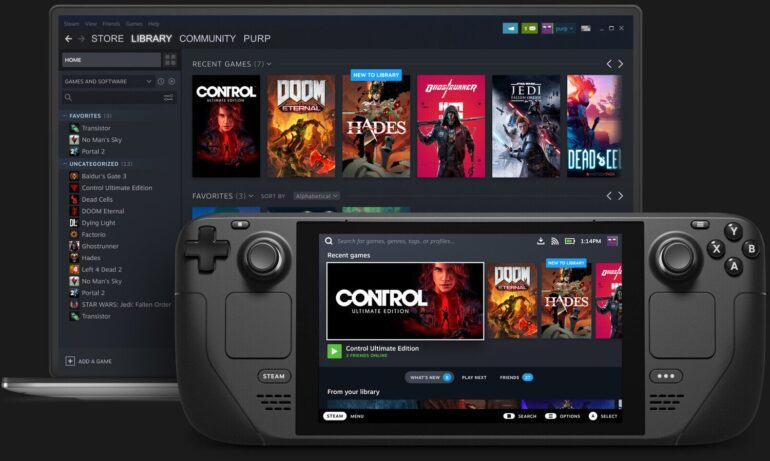TL;DR:
- Valve is reportedly blocking video games on Steam that feature AI-generated assets, citing issues with rights and ownership.
- A Reddit post highlighted Valve’s message to a developer explaining their inability to ship games without proper rights.
- The use of AI-generated art in games poses challenges for copyright attribution and ownership.
- Valve’s decision stems from uncertainty regarding ownership rights of AI technology and the training data used.
- Reports suggest that Steam has also been rejecting games utilizing AI-made text.
- Some speculate that the alleged AI game bans on Steam might be a hoax, as numerous games openly disclose their use of AI-created content.
Main AI News:
In an unexpected twist, rumors are swirling that Valve, the renowned gaming publisher, is purportedly taking a hardline approach towards games featuring AI-generated assets, effectively barring them from being listed on its highly popular online marketplace, Steam. Reports emerged after a Reddit post, brought to light by Simon Carless, the founder of GameDiscoverCo, shared a message from Valve, stating that they “cannot ship games for which the developer does not have all of the necessary rights.” Moreover, on June 29, another Redditor claimed that Steam rejected their game due to its “utilization of AI tech.”
The developer who initiated the discussion revealed that they initially attempted to release their game, featuring a few assets that were quite obviously created through AI technology. “My plan was to just submit a rougher version of the game,” they explained, “and to improve them prior to actually releasing the game as I wasn’t aware Steam had any issues with AI-generated art.” Although Steam’s guidelines for developer submissions do not explicitly prohibit AI-generated content, similar to their ban on blockchain-based games involving cryptocurrencies or NFTs, they do emphasize that any “Content you don’t own or have adequate rights to” is strictly forbidden.
Ever since AI-generated art became more accessible to the general public through platforms like Dall-E 2 and Midjourney in 2022, traditional artists have voiced concerns regarding the copyright ownership of artwork produced by mathematical algorithms. To effectively carry out their functions, AI art generators rely on vast datasets of existing images, making it challenging to determine copyright attribution. While some argue that the individual who created the AI system should automatically own the rights to all the artwork it produces, both the U.S. Copyright Office and visual artists have thus far disagreed. Consequently, ownership of AI-generated art remains in the hands of the AI company rather than the developer who utilizes the artwork in their game.
According to reports, Valve informed the developer that their game “contains art assets generated by artificial intelligence that appears to be relying on copyrighted material owned by third parties. As the legal ownership of such AI-generated art is unclear, we cannot ship your game while it contains these AI-generated assets unless you can affirmatively confirm that you own the rights to all of the IP used in the data set that trained the AI to create the assets in your game.” The stakes were made clear: failure to remove the contentious content would result in the game being banned from Steam.
Valve’s ultimate decision was based on the uncertainty surrounding the ownership rights of the underlying AI technology used to create the assets. Consequently, there have been reports of Steam also rejecting games featuring AI-generated text, using a boilerplate rejection message similar to the one received by the Reddit developer.
However, skeptics suggest that the notion of an AI game ban on Steam may be nothing more than an elaborate ruse. If these messages are indeed authentic, Valve’s recent stance marks a significant departure from their previous leniency. Notably, there are currently several games available on Steam that openly disclose their use of AI-generated art and text in their descriptions, suggesting that the perceived AI “ban” on Steam might not hold as much weight in practice.
Conclusion:
Valve’s reported crackdown on AI-generated games has sparked debate within the gaming community. The issue revolves around the complexities of copyright ownership in relation to AI-generated art. If the bans are indeed genuine, it signifies a shift in Valve’s policy and raises questions about the future of AI-generated content on the Steam platform. However, the existence of games already featuring AI-created assets on Steam suggests that the perceived ban may not have a significant impact on practice. Further clarification from Valve is needed to understand their stance on AI-generated games and their implications for the market.

